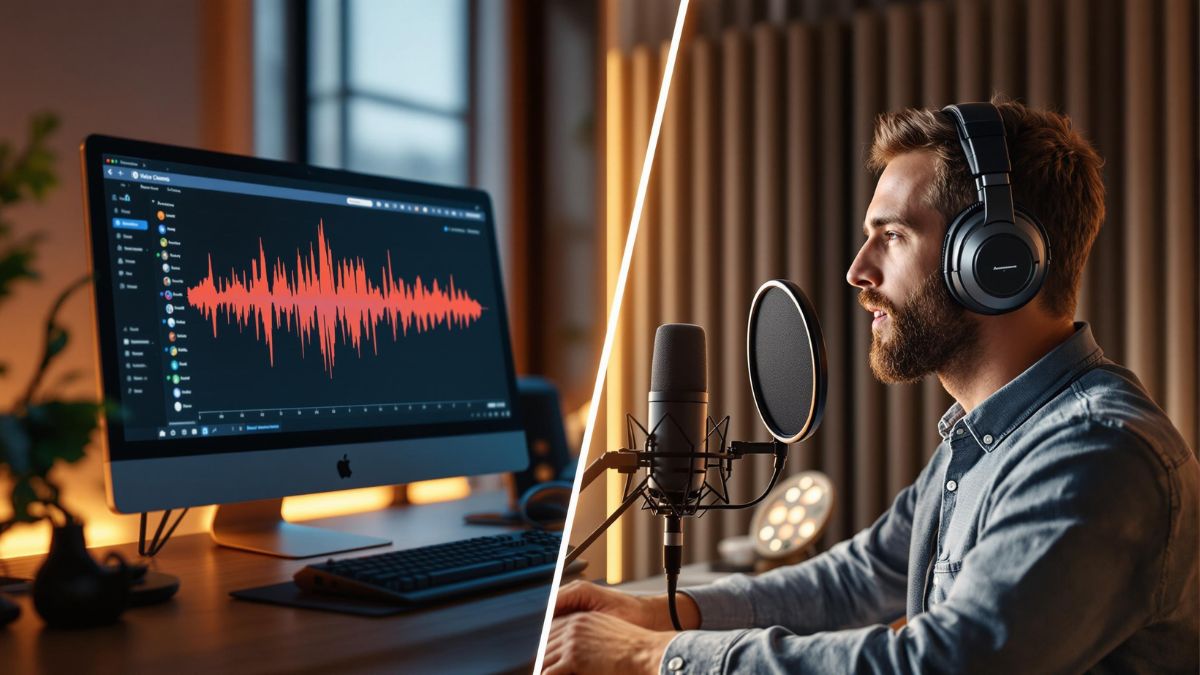Voice Production in the AI Era
 As technology rapidly evolves, the landscape of voice production is undergoing a dramatic transformation. At Dicapta, our commitment to innovation is matched only by our dedication to maintaining the highest quality standards in accessibility. By integrating artificial intelligence (AI) into our voice production processes, we've discovered exciting opportunities and important challenges shaping our approach to modern audio production.
As technology rapidly evolves, the landscape of voice production is undergoing a dramatic transformation. At Dicapta, our commitment to innovation is matched only by our dedication to maintaining the highest quality standards in accessibility. By integrating artificial intelligence (AI) into our voice production processes, we've discovered exciting opportunities and important challenges shaping our approach to modern audio production.
Understanding Today's Voice Technologies
Voice technology has evolved far beyond simple recordings, now encompassing multiple approaches that each serve distinct purposes in audio production. Natural voices - recorded by professional voice actors in studio conditions - remain the gold standard for emotional depth and nuanced performance. Cloned voices, created through AI replication of existing voice patterns, offer a bridge between traditional recording and synthetic generation. Synthetic voices, generated entirely through artificial intelligence, represent the newest frontier in voice production technology.
The distinction between text-to-speech (TTS) and speech-to-speech (STS) capabilities further shapes our production decisions. TTS technology converts written text directly into spoken words, while STS transforms existing audio from one voice into another while maintaining the original timing and emotion. Each approach presents unique advantages and challenges in different production scenarios.
Our Approach to Voice Production
The success of any voice production project begins with careful casting. Our team evaluates multiple factors during the selection process, from voice-character matching and emotional range to accent authenticity and project scope requirements. Experience has taught us that successful casting requires more than listening to standard voice samples – we test voices using actual project dialogue to identify potential challenges early in the production process. This rigorous quality control approach ensures that whether we're working with natural or AI voices, the final product meets our performance and technical quality requirements.
The integration of AI voice technology presents a complex landscape of challenges that require careful navigation. The rapid evolution of technology demands constant adaptation from our team as new capabilities and limitations emerge regularly. Though AI voices can contribute to long-term cost optimization in certain projects, it's important to note that the technology also requires considerable changes to production processes that must be factored in. One of the most significant challenges lies in handling non-verbal sounds and singing, where AI technology still has considerable room for improvement. Additionally, the availability and consistency of voice libraries across different AI voice platforms can impact production planning and execution.
Innovation and the Path Forward
As technology advances at an unprecedented pace, Dicapta continues to push the boundaries of accessible media production while maintaining our commitment to quality. Collaboration remains central to our innovation strategy – we work closely with accessibility and technology industry professionals to ensure our technological developments align with user needs and establish best practices in this rapidly evolving field.
Our vision extends beyond merely implementing new technology; we're actively building a future where accessibility and innovation work hand in hand. As we move forward, we'll continue to balance the excitement of innovation with our fundamental responsibility to maintain the highest standards of quality and accessibility in everything we do.
